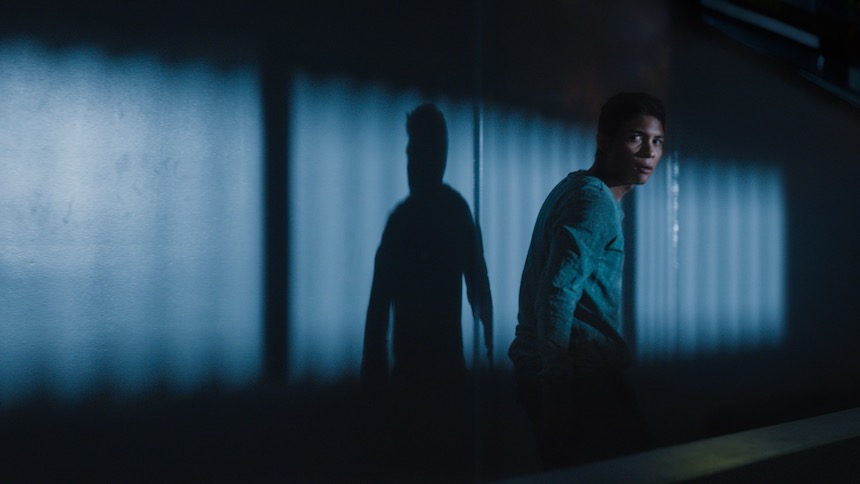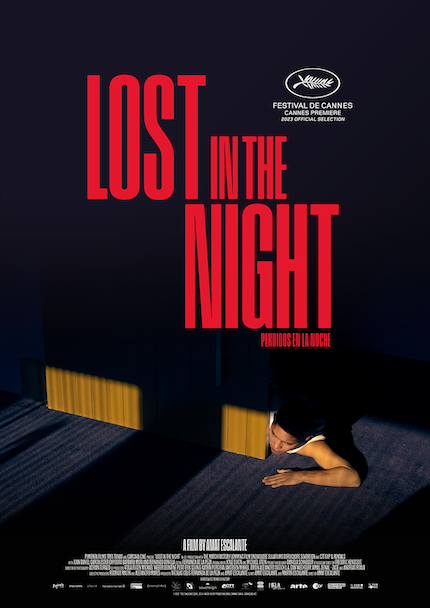Cannes 2023 Roundtable Interview: Amat Escalante Talks LOST IN THE NIGHT

Amat Escalante returned to the Croisette, exactly 10 years after the premiere of Heli, for which he won the Best Director award at this prestigious festival.
With Lost in the Night (aka Perdidos en la noche), Escalante continues to address similar themes, linked to one of the most violent times in Mexico. The opposition to a mine that operates with foreign capital causes a group of municipal police officers to carry out brutal actions. Three years later, Emiliano (Juan Daniel García) – the son of a missing woman who led the complaints against the mine – ends up with a key clue that could bring about the resolution that he and his sister have sought so much.
Although there’s an eventual passage in the film that makes explicit reference to the narcos, and to a bullet that takes the life of a girl, on this occasion the Mexican filmmaker concentrates on a different angle: said clue leads Emiliano to work in the home of a rather eccentric family. That’s how he gets to know Rigoberto, a controversial and provocative contemporary artist (Fernando Bonilla), hated by a religious cult known as the Aluxes; a famous actress and singer (Bárbara Mori); and her daughter, a young influencer (Ester Expósito).

Emiliano's relationship with a local girl begins to experience ups and downs. (We see a mutual masturbation scene that could cause controversy for being partially explicit.) So he begins to connect with Expósito’s character. At the same time, his suspicion grows that, as unlikely as it may seem, a famous couple are somehow linked to that bloodstained mine.
One day after the Cannes premiere of Lost in the Night, I had the opportunity to be at a roundtable with Escalante and other international journalists. My questions were about a certain impression: although Escalante continues to reflect the violent reality of our country – with total impunity -- he has now decided to connect it with the world of art and entertainment:
“There are a lot of Mexican artists who are important in the world and have made a living from their art. The idea of using your surroundings, which can be quite unjust, violent and tragic for the people who inspire you, what does that entails?
"That’s my part also, because I live in Guanajuato, [which] in the last 10 years has become the most violent state of Mexico. That brings a lot of inspiration for art, like I did in Heli, but I'm questioning the use of that to tell a story and entertain people.
"I like to think it’s bringing reflection on the situation and maybe that helps. But if not, then what's the purpose of using someone's tragedy for a story or an art piece? It's not such a new concept; that's how storytelling works, you have to look for the tragedy, the drama or the comedy.
"You’re using elements of real life; the people who lived them aren’t entertaining themselves with that, but maybe you’re entertaining other people. I’m questioning my own experience as a filmmaker, playing with that idea to see what happens, from that angle similar to Rigoberto’s.”

Likewise, Lost in the Night makes direct references to the abuses that women suffer in the entertainment industry. For example, one of Rigoberto's art pieces was inspired by his partner's complaints against a producer.
When mentioning that Lost in the Night is his first film since the Me Too movement, Escalante had the following to say:
“There are elements that didn't really exist before, this idea of public accusations. Well, they did exist, but not as structured or named as it is now, you could just say 'the Me Too movement' and we know what you're talking about.
"That definitely changed the art and film world. It was close to me, it’s been something interesting with its complexities and benefits. At the same time, you're very surprised how little changes also, you’re always surprised to hear new things, really? Men are still thinking they can get away with that? But then they do. It's an interesting time."
Lost in the Night will be distributed in Mexico by Pimienta Films.







